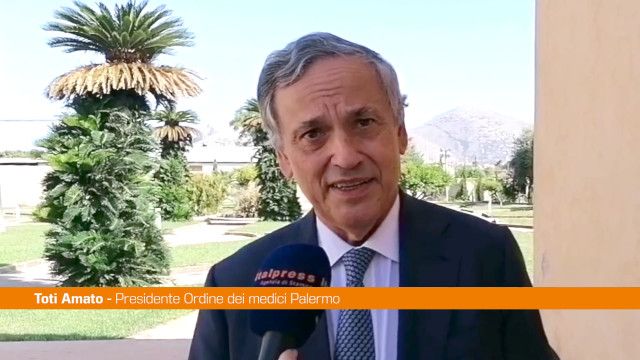PALERMO (ITALPRESS) – “The wave of attacks against health care personnel is growing in Sicily. Among the most recent cases: on Jan. 21 in Termini Imerese and Umberto I in Enna; on June 16 at Cannizzaro in Catania; on Oct. 5 at Zen in Palermo against 118; between Oct. 5 and 7 in various Sicilian hospitals; on Oct. 16 at San Marco in Catania; on Oct. 21 in Palermo another assault on a 118 operator.” Raising the alarm is the Omceo – Medical Association of Palermo. “The rift between doctors and patients is now chronic and doctors for fear run away from hospitals, to private or abroad. To date, there is a shortage of about 1,500 doctors, and the youngest are also deserting specialization schools, especially in emergency-urgency,” denounces, on behalf of all members, Toti Amato, president of the Palermo Medical Association. “To respond to the serious shortage of doctors, the Sicilian Region has recently started recruiting foreign doctors, mainly from Argentina and Cuba, with 16 arrivals in February, 100 in November, and more will arrive. In the meantime, however, the flight of doctors continues and it is very serious because it is no longer just an economic matter, since they have among the lowest salaries in Europe, but because they constantly live in the anguish of being attacked. Health workers are demanding better working conditions and security. I understand the urgency of recruitment, but it is incumbent on any extraordinary measure to be accompanied by long-term strategies, and I cannot refrain from pointing out the consequences of this choice for responding to health needs, which must instead aim to retain our physicians,” Amato adds.The physicians’ president then launches an appeal to citizens: “Sicilians must know that the day there will be no more physicians to attack, there will be no more services and those that remain will have a series of critical issues. Starting with the language and cultural barriers that foreign doctors will have to contend with, despite being qualified professionals. Sicily has a strong dialect identity and their interaction may be more difficult than elsewhere, compromising the quality of care and the trust relationship with the patient. In addition, medical training systems are different depending on the country of origin, and this may lead to discrepancies in protocols. Additional adaptation and training programs will be necessary, entailing additional costs for our health care system, which is already in deep crisis. “Another problem will arise on the level of professional and social integration because often,” Amato concludes, “foreign physicians work temporarily and if they cannot adapt to the context they may decide to leave after a few years, increasing turnover and destabilizing hospital facilities. Nor can the possible wage disparity be ignored because they risk being hired on less favorable contracts than their Italian colleagues, fueling a climate of tension. Not to mention that hiring medical staff from developing countries fuels the brain drain to those places, exacerbating global health inequalities.”- photo Italpress -(ITALPRESS).

